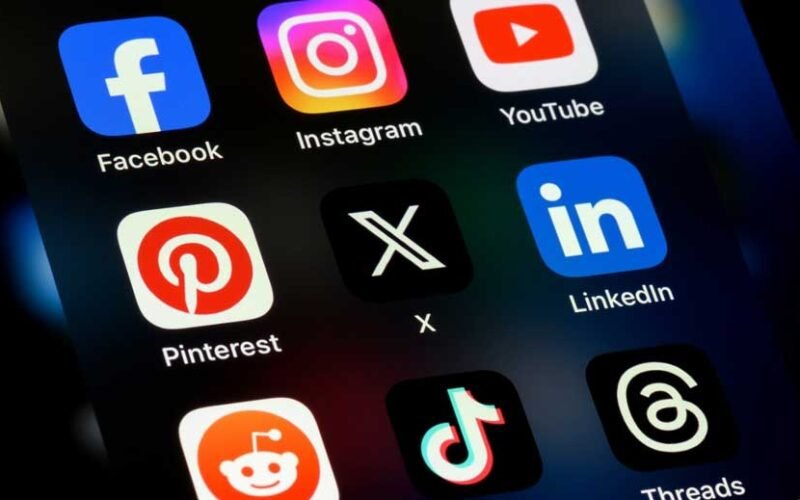In the ever-evolving world of digital connectivity, social media remains at the forefront of global interaction. Billions of users engage daily with platforms for communication, entertainment, shopping, and more. As trends shift, some platforms thrive while others fade into obscurity. So, what are the biggest social media sites right now? Let’s explore the platforms dominating the digital landscape and why they matter.
-
Facebook
Monthly Active Users (MAUs): 2.9 Billion
Facebook has been the largest social media platform for over a decade. Established in 2004 by Mark Zuckerberg, it evolved from a college networking site to a global juggernaut. Its ability to adapt—introducing features like Stories, Marketplace, and Groups—has kept it relevant despite increased competition.
Why Facebook Stands Out:
- Global Reach:It’s accessible in nearly every country.
- Versatility:From personal connections to business marketing, Facebook serves multiple purposes.
- Advertising Power:Its ad platform is one of the most robust, offering targeted campaigns to businesses.
-
YouTube
Monthly Active Users (MAUs): 2.5 Billion
Google-owned YouTube is the go-to platform for video content. Whether it’s tutorials, music videos, vlogs, or live streams, YouTube caters to a vast audience. Its monetization opportunities have also turned content creation into a viable career path for many.
Why YouTube Stands Out:
- Diverse Content:It offers everything from 10-second shorts to full-length documentaries.
- Searchability:As the second-largest search engine globally, YouTube benefits from Google’s powerful algorithms.
- Revenue Opportunities:Content creators can earn through ads, memberships, and sponsorships.
-
Instagram
Monthly Active Users (MAUs): 2 Billion
Instagram started as a photo-sharing app in 2010 and has since evolved into a multimedia powerhouse. Now owned by Meta (Facebook’s parent company), it focuses on visual storytelling through posts, Stories, Reels, and IGTV. This evolution has made building a strong presence crucial for users and brands alike. A key metric for success on the platform often revolves around the number of Instagram followers one can cultivate.
Why Instagram Stands Out:
- Aesthetic Appeal:Its visual nature attracts creatives and businesses alike.
- Reels Feature:Competing directly with TikTok, Reels enhances user engagement.
- Influencer Hub:Instagram is a top platform for influencer marketing, connecting brands with audiences.
-
TikTok
Monthly Active Users (MAUs): 1.8 Billion
TikTok has skyrocketed to fame, especially among younger audiences. Known for its short-form video content, it’s a hub for trends, memes, and viral challenges. The platform’s algorithm delivers highly personalized content, keeping users engaged for hours.
Why TikTok Stands Out:
- Engaging Content:Its short videos are designed for quick consumption.
- Global Trends:TikTok shapes cultural phenomena worldwide.
- Creator Ecosystem:It offers tools and monetization options for aspiring influencers.
-
WhatsApp
Monthly Active Users (MAUs): 2.2 Billion
WhatsApp is primarily a messaging app that has expanded its capabilities to include voice and video calls, as well as business tools. Owned by Meta, it’s the most popular messaging platform worldwide, especially in regions like India, Brazil, and Africa.
Why WhatsApp Stands Out:
- Ease of Use:Its simple interface appeals to a broad demographic.
- Privacy Features:End-to-end encryption ensures secure communication.
- Business Integration:Companies use WhatsApp Business to connect with customers.
-
WeChat
Monthly Active Users (MAUs): 1.3 Billion
WeChat is much more than a social media platform—it’s a super app. Dominating China, WeChat combines messaging, social networking, payment services, and more into one app.
Why WeChat Stands Out:
- Multifunctionality:Users can chat, shop, pay bills, and book services.
- Mini-Programs:Third-party apps within WeChat enhance its usability.
- Cultural Relevance:It’s deeply integrated into daily life in China.
-
LinkedIn
Monthly Active Users (MAUs): 930 Million
LinkedIn, owned by Microsoft, focuses on professional networking. It’s a platform for job seekers, recruiters, and businesses to connect and share industry insights.
Why LinkedIn Stands Out:
- Professional Focus:Unlike other platforms, LinkedIn is career-centric.
- Content Variety:Users can post articles, updates, and video content.
- Job Opportunities:It’s a leading platform for hiring and recruitment.
-
Snapchat
Monthly Active Users (MAUs): 750 Million
Snapchat revolutionized social media with its disappearing content. Thanks to features like Stories, Snap Maps, and AR filters, its popularity among younger audiences remains strong.
Why Snapchat Stands Out:
- Ephemeral Content:Temporary posts create a sense of urgency.
- AR Features:Interactive filters and lenses make it highly engaging.
- Direct Communication:Users enjoy casual, one-on-one interactions.
-
Twitter (Now X)
Monthly Active Users (MAUs): 540 Million
Twitter, recently rebranded to X, remains a platform for real-time updates and public discourse. Its role as a news source and forum for public figures keeps it relevant.
Why Twitter Stands Out:
- Real-Time Engagement:It’s the fastest way to share and consume breaking news.
- Public Forum:Users can interact directly with celebrities, brands, and politicians.
- Community Building:Hashtags foster niche communities and discussions.
-
Pinterest
Monthly Active Users (MAUs): 465 Million
Pinterest is a visual discovery platform ideal for planning and inspiration. It’s particularly popular among DIY enthusiasts, interior designers, and event planners.
Why Pinterest Stands Out:
- Searchable Content:Pins are easy to organize and revisit.
- Niche Appeal:It attracts users with specific interests like crafts or recipes.
- E-commerce Potential:Businesses leverage Pinterest to drive traffic and sales.
Honorable Mentions
While these platforms may not have the same user base as the giants above, they are rapidly growing or hold niche appeal:
- Reddit:A hub for discussions across countless topics, Reddit’s community-driven model sets it apart.
- Telegram:Known for secure messaging and large group capabilities.
- Discord:Initially for gamers, Discord now hosts communities for every interest.
Factors Contributing to Success
The biggest social media sites succeed due to several factors:
- User-Friendly Design:Intuitive interfaces encourage adoption.
- Engaging Content:Platforms like TikTok thrive on user-generated, entertaining content.
- Diverse Features:Facebook’s versatility and WeChat’s multifunctionality are key.
- Global Accessibility:Platforms like WhatsApp cater to users in developing markets.
- Adaptability:Success often depends on how well platforms evolve with trends.
Why Knowing the Biggest Social Media Sites Matters
Understanding the most popular platforms helps businesses, influencers, and marketers make informed decisions. By targeting platforms with massive audiences, brands can maximize reach and engagement. However, choosing the right platform also depends on audience demographics and campaign goals.
The Future of Social Media
The social media landscape continues to evolve. Emerging technologies like augmented reality (AR), virtual reality (VR), and artificial intelligence (AI) are shaping the future. Platforms that innovate while staying true to user needs will likely dominate in the years to come.
Conclusion
The biggest social media sites right now—Facebook, YouTube, Instagram, and TikTok—shape how we connect and consume content. Each platform offers unique features, making it indispensable for personal use and business growth. As these platforms evolve, staying updated is crucial for leveraging their full potential.
Whether you’re a marketer, a business owner, or a casual user, understanding these platforms helps you navigate the dynamic digital world. Embrace the opportunities they offer and make the most of the social media landscape!










